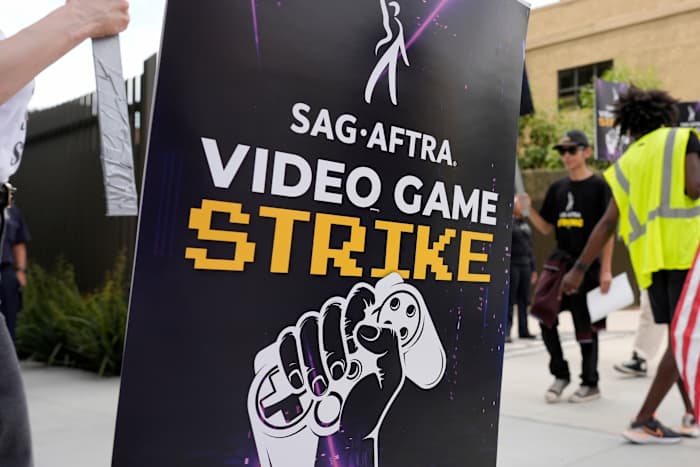AI in Gaming: Revolution or Risk?
Author: Itzel Luna, Associated Press

The gaming industry is on the cusp of a revolution, as video game actors prepare to vote on a new contract that could redefine their roles in a world increasingly influenced by artificial intelligence (AI). Following a nearly year-long strike, a tentative agreement passed by the union board in June aims to bring video game performers back into the studio, now under conditions that address the burgeoning presence of AI.
In recent years, AI has not only enhanced gameplay experiences but also raised concerns about the future of gaming jobs. With the emergence of AI-generated characters and avatars, actors worry that their unique performances may be rendered obsolete. The negotiations between the video game union and major studios have thus turned into a crucial battleground for issues surrounding AI, particularly regarding how AI will be integrated into the creation of digital characters that resemble human actors.

Video game actors discussing their future in light of AI advancements.
Moreover, the tentative contract includes provisions that aim to protect actors from being replaced by AI. The unions are advocating for clear guidelines on how AI can be used in video game development—particularly ensuring that human performances remain integral to character creation and interactive storytelling.
As the use of AI in video games expands, the potential for creating lifelike characters through AI technology has become a double-edged sword. While AI can provide voices, animations, and even entire performances, the question remains whether these digital creations can truly capture the depth and nuance of human emotion that skilled actors bring to their roles.
In tandem with the actors' concerns, there are discussions leading into advancements like the recently launched Cerebras Inference Cloud in the AWS Marketplace. This technology promises to enhance AI-driven applications, providing developers with powerful tools to build interactive experiences. With such tools, companies can leverage AI to create more immersive worlds while wrestling with ethical considerations of who and what will make the stories come alive.
The tension between technological advancement and artistic authenticity is exemplified by the rise of virtual performers like Bloo, an AI-powered YouTuber amassing millions of subscribers. Created by Jordi van den Bussche, Bloo's popularity points toward a new era in digital content creation where humans are not the only contributors to entertainment.
Alongside the discussions of AI in gaming, there are broader implications regarding job security in technology sectors, illustrated by the recent exposure of a serial moonlighter in Silicon Valley who held 19 jobs simultaneously. This case reveals a culture driven by unconventional work ethics, wherein individuals strive to maximize their earnings while potentially jeopardizing their reputations.
Still, amidst fears of job displacement, AI presents significant opportunities. As efficiencies improve through automation, the focus for human artists and performers may shift towards roles that embrace creativity and emotional intelligence, aspects where AI currently struggles to match human ingenuity.
In conclusion, as video game actors navigate the complexities of their new contract while the rise of AI transforms the industry landscape, the future of gaming stands at a crossroads. It is a time ripe for dialogue among stakeholders, whereby a balance can be struck that honors the creative talents of human performers while embracing the advancements of AI that could redefine the world of interactive entertainment.